In the sweltering summer of 1925, a small town in Tennessee became the focal point of a national debate that would echo through the annals of American history. The Scopes Monkey Trial, as it came to be known, wasn’t just a legal skirmish over teaching Darwin’s theory of evolution—it was a profound cultural and philosophical confrontation that would challenge the very fabric of society. The trial was dubbed the ‘Monkey Trial’ due to its focus on the teaching of evolution, specifically the idea that humans descended from primates, which was a central issue contested during the proceedings. At the heart of this drama was John Scopes, a 24-year-old teacher who dared to challenge the status quo.
Background of the Butler Act
Earlier that year, the state of Tennessee, United States had passed the Butler Act, a law making it illegal to teach human evolution in any state-funded school. This act was a response to the growing tension between traditional Christian values and the new scientific theories that seemed to undermine them. As signs of the Roaring Twenties swirled around them, many in the conservative heartlands of America felt a profound disquiet, fearing that the moral pillars of their community were under threat.
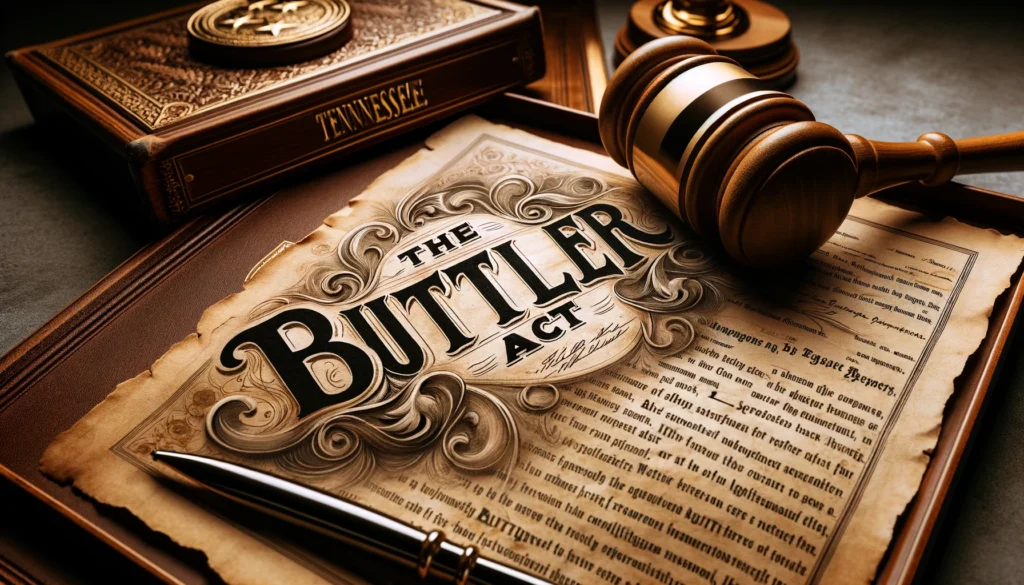
The Incitement of the Trial
In the spring of 1925, John Scopes, a young science teacher in Dayton, Tennessee, found himself at the epicenter of a brewing storm. The passage of the Butler Act had just made it illegal to teach the theory of evolution in public schools, sparking intense national debate. When the American Civil Liberties Union announced its intention to challenge this law, Scopes became their willing conspirator. He saw the Act not just as an infringement on educational freedom but as a challenge to intellectual integrity itself.
“Let’s see if we can’t do something about this law,” Scopes reportedly said to his friends, feeling both the weight and thrill of the impending legal battle. His decision was not made in isolation; the town’s businessmen, recognizing a golden opportunity for publicity, encouraged Scopes to defy the law, turning their quiet community into a national spectacle. Thus, a stage was set not only for a court trial but for a dramatic showdown between modern science and traditional beliefs.
The Trial Proceedings
The trial began on a hot July day with the kind of oppressive humidity that seemed to underscore the gravity of the proceedings. The small courtroom was quickly filled to capacity, buzzing with anticipation as two of the nation’s most formidable public figures took center stage. William Jennings Bryan, a titan of Christian conservatism, led the prosecution with a fiery zeal, determined to defend the Biblical account of creation. Across from him stood Clarence Darrow, a legendary defense attorney and a staunch advocate for secular thought, ready to challenge the very foundation of fundamentalist Christianity.
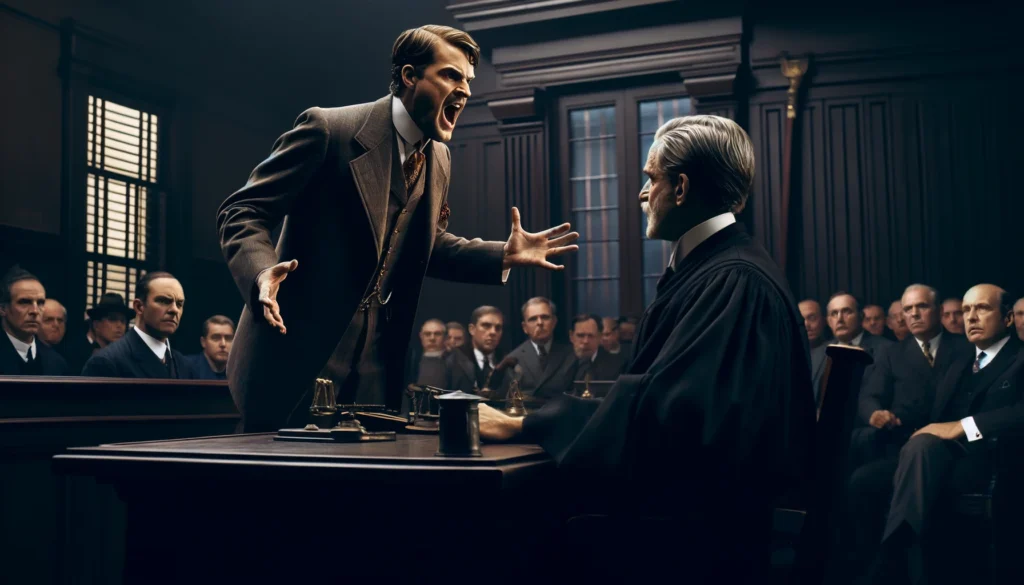
As the trial unfolded, it became a spectacle of sharp wit and cutting rhetoric. The turning point came when Darrow summoned Bryan to the stand as a defense witness, an unprecedented move that turned the trial on its head. Under Darrow’s relentless questioning, the courtroom crackled with tension. Darrow’s questions were pointed, designed not just to challenge Bryan but to undermine the legal and rational foundations of the Butler Act itself.
“How old do you think the Earth is?” Darrow asked, his voice filled with challenge.
Bryan stumbled, “Not so old as they try to make out.”
“And do you believe that every word of the Bible should be taken literally?”
“Yes, if it’s read as intended,” Bryan asserted, his voice faltering under the weight of scrutiny.
This exchange not only captivated the audience but also highlighted the profound cultural divide. Each question from Darrow and each response from Bryan resonated far beyond the walls of the courtroom, echoing through households across the country. The trial was no longer just about John Scopes, a teacher, or even about the legality of a Tennessee law—it was a defining moment in American cultural history.
Outcome and Impact
As the trial drew to a close, the charged atmosphere of the courtroom gave way to a tense silence. When the guilty verdict was announced, it seemed both inevitable and surreal. John Scopes was fined $100 (equivalent to $1,784.75 today). The legal battle, however, was far from over. The case was catapulted to the Tennessee Supreme Court, where the original verdict was upheld—affirming the constitutionality of the Butler Act, but overturning Scopes’ conviction on a technicality: the judge, not the jury, had determined the fine, violating Tennessee law.
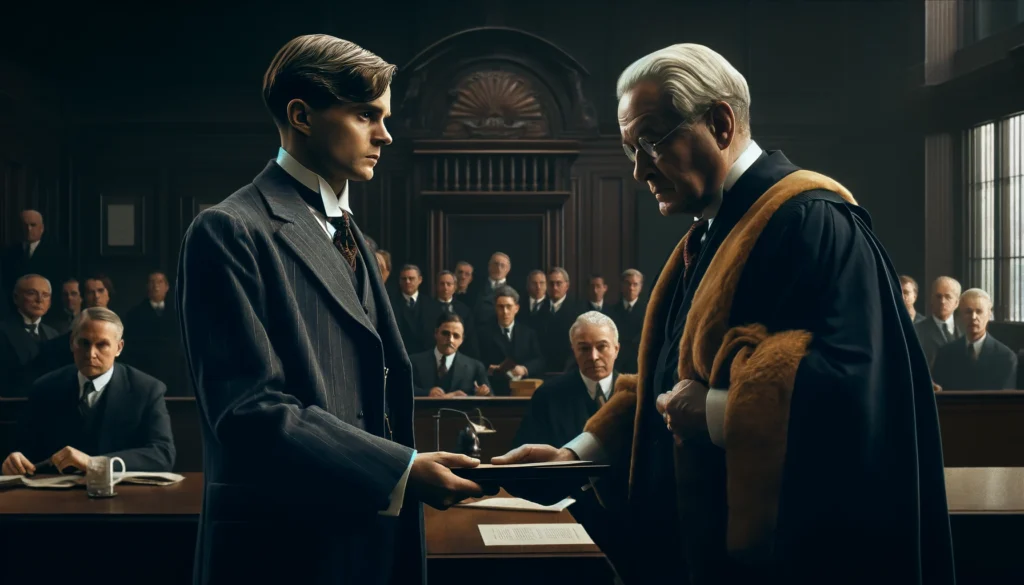
The decision was a pyrrhic victory for both sides. For the proponents of the Butler Act, it was a confirmation of their legal stance but a blow to their public credibility. For the defenders of scientific freedom, it was a setback tempered by a broader national dialogue about academic freedom and the role of religion in public schools. The Scopes Trial ignited a debate that transcended the borders of Tennessee, challenging Americans to reconsider the relationship between science and religion in modern society.
The Legacy of the Scopes Trial
The echoes of the Scopes Monkey Trial have reverberated through the decades, leaving a lasting imprint on American culture and education. Although the Butler Act remained on the books until 1967, its practical enforcement waned as public sentiment shifted. The trial’s legacy is multifaceted, influencing not only educational policies but also how Americans conceptualize the intersection of faith and science.
In the years that followed, the trial became emblematic of the struggle between progressivism and traditionalism, a microcosm of the broader cultural conflicts that have shaped the 20th century. The narrative of the Scopes Trial has been revisited in numerous books, plays, and films, each iteration exploring the themes of intellectual freedom and the clash between old-world dogma and new-world discoveries. It served as a catalyst for the educational reform movements that would later sweep the nation, gradually leading to the widespread acceptance of evolutionary theory in school curricula.
Moreover, the trial highlighted the power of media and public opinion, demonstrating how courtroom battles can influence societal values and the legal landscape. The Scopes Trial not only shaped legal precedents but also played a crucial role in the evolution of American public discourse, reminding us of the ongoing dialogue between the past and the present, between what we believe and what we know.
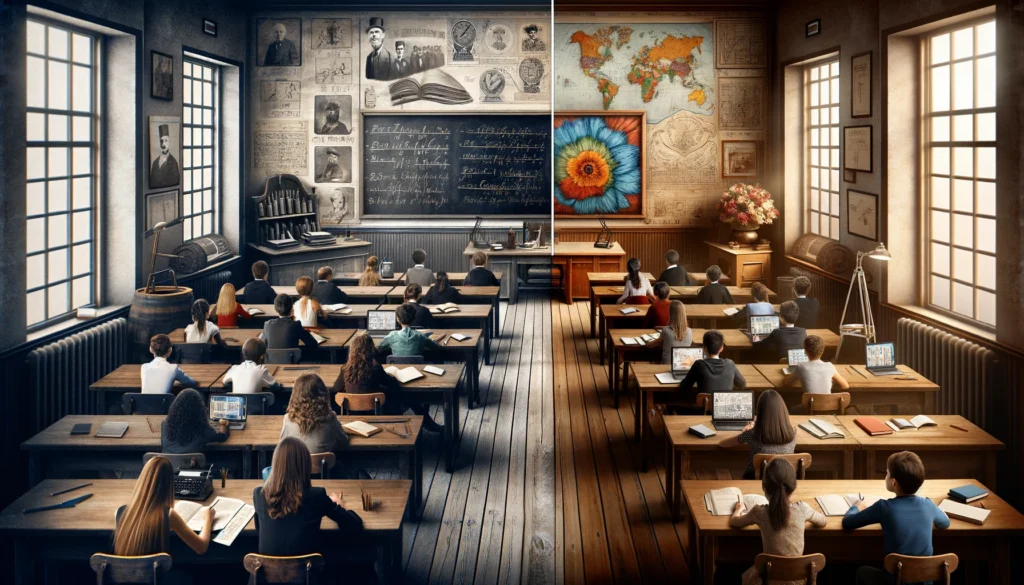
Conclusion
The Scopes Monkey Trial remains one of the most dramatic and significant moments in American legal and educational history. It was not just a dispute over a state law but a profound cultural battle that resonated with the deeper conflicts of the era. The trial’s legacy continues to influence debates on how we understand science, religion, and their place in public life. As we look back on those heated days in Dayton, we see not just a courtroom drama but a pivotal moment in the evolving story of American identity.
Author’s Note
Thank you for joining me on this journey through one of the most pivotal legal and cultural battles in American history. The Scopes Monkey Trial serves as a powerful reminder of the ongoing dialogue between science and society. It challenges us to reflect on the values we champion and the knowledge we teach. I hope this exploration prompts you to think more deeply about the role of education in shaping our understanding of the world.
G.C., Ecosociosphere contributor.
References and Further Reading
- “Summer for the Gods: The Scopes Trial and America’s Continuing Debate Over Science and Religion” by Edward J. Larson – This Pulitzer Prize-winning book offers a comprehensive historical account of the Scopes Trial and its implications for the relationship between science and religion in America.
- “The Great Monkey Trial” by L. Sprague de Camp – Providing a detailed narrative of the trial, this book delves into the legal strategies and personal dramas that defined the event.
- “Inherit the Wind: The Powerful Drama of the Greatest Courtroom Clash of the Century” by Jerome Lawrence and Robert E. Lee – Though a work of fiction, this play is a dramatized version of the Scopes Trial that captures the philosophical and cultural tensions of the time.

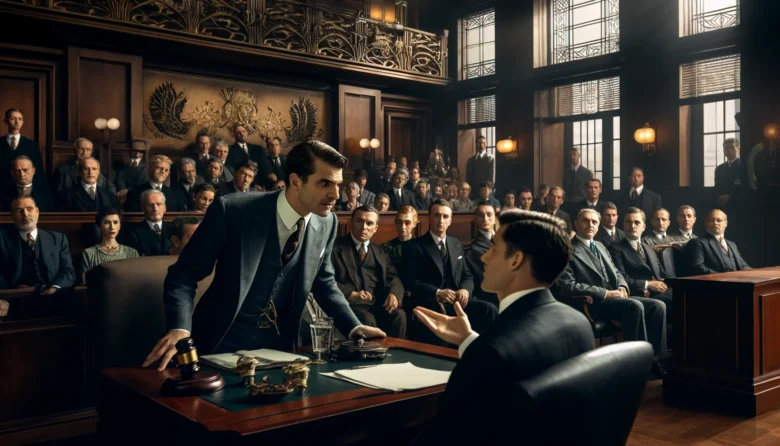



Comments
Sweet website , super pattern, rattling clean and employ genial.
I needed to put you one little note to help say thank you the moment again with your great strategies you have shown on this site. This is so seriously generous with people like you to deliver unreservedly exactly what a few people might have marketed as an e book in order to make some cash for their own end, even more so considering that you could possibly have done it in the event you desired. These solutions as well acted as a good way to be sure that the rest have the identical desire like my very own to figure out a good deal more on the subject of this matter. I know there are thousands of more pleasurable instances in the future for individuals who discover your blog.
Thank you for sharing this article with me. It helped me a lot and I love it. http://www.hairstylesvip.com